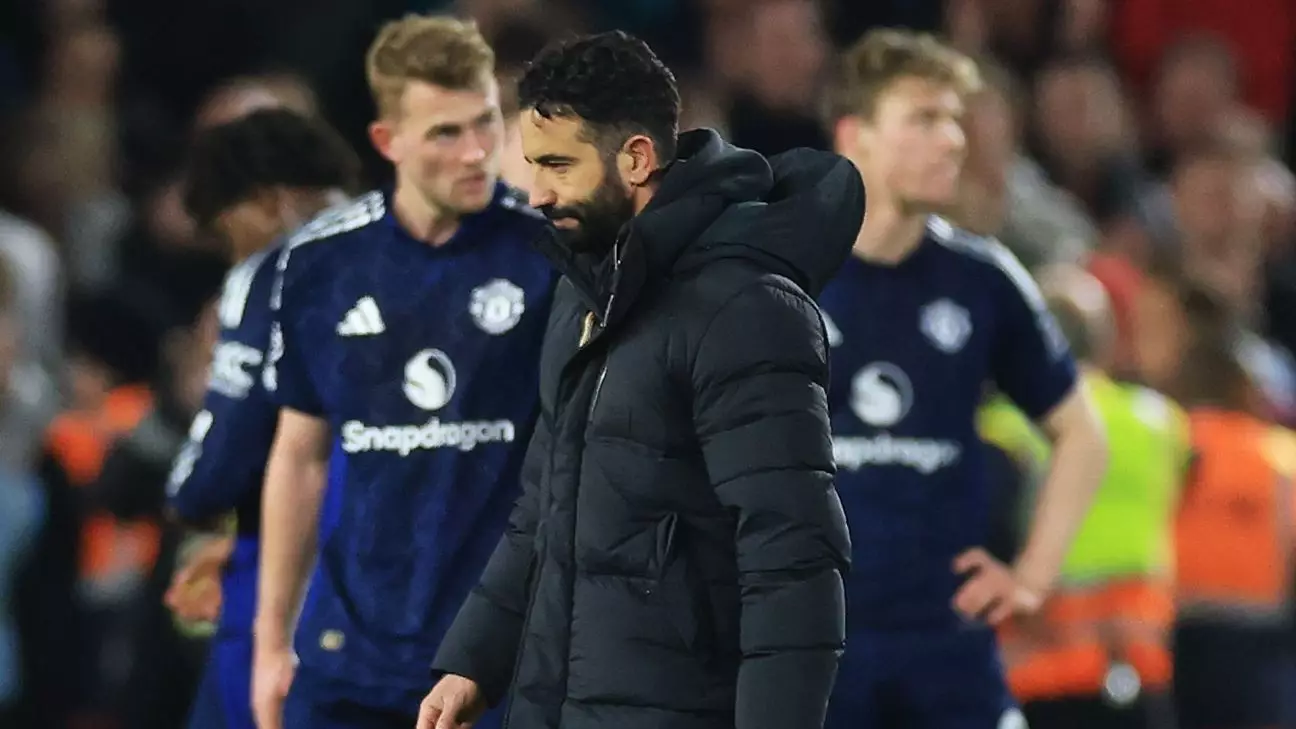The iconic Manchester United, once synonymous with success and glory, finds itself entrenched in a season of disappointment, exacerbated by a string of disheartening results. Under the stewardship of manager Ruben Amorim, the expectations were high, yet the reality has been starkly different. Following a humbling defeat to Nottingham Forest, the stakes have never seemed higher for the Portuguese tactician. With this recent loss marking United’s 13th setback in the Premier League, Amorim faces mounting pressure to rectify a declining situation at Old Trafford.
Time: A Precious Commodity
In an environment where immediate results are expected, Amorim has openly acknowledged the precariousness of his position. “In Manchester United, you don’t have the time,” he stated, highlighting the relentless scrutiny that surrounds the club’s management. This sentiment underscores the predicament of many modern managers: a lack of patience from both the board and the fan base can lead to swift dismissal—even after just a fleeting glimpse of potential. Time, particularly in high-stakes football, becomes a luxury that most cannot afford, and Amorim’s acknowledgment of this pressure reveals a depth of understanding of the daunting landscape he must navigate.
Analyzing the Performance: Struggles in the Final Third
Despite Amorim’s insistence on his team’s control during stretches of the match, the reality reflects a troubling inability to convert possession into meaningful scoring opportunities. Alejandro Garnacho, tasked with leading the charge in attack, struggled immensely. With six attempts on goal but failing to challenge goalkeeper Matz Sels, Garnacho epitomizes the broader issues plaguing United’s attacking line. While Amorim has courageously defended the young player’s efforts, it raises serious questions about tactical effectiveness and finishing competence—a theme that has been disturbingly recurrent this season.
Transition Play and Tactical Shortcomings
Amorim pointedly critiqued his team’s tendency to crumble under early pressure, stating that conceding a goal at the onset of the match puts them in a vulnerable position. This reflects an inherent flaw in United’s setup, where the defensive lapses allow opponents to establish a defensive fortress. Riding on fast transitions, teams like Nottingham Forest can exploit such weaknesses, leaving United feeling increasingly bereft of options as games progress. The tactical acumen required to adjust in real time is often missing, resulting in a frustrating pattern that not only hinders their current campaign but also casts doubts on the long-term vision that Amorim seeks to establish.
Support Amidst Struggles
Despite his visible frustrations, Amorim’s commitment to fostering a positive environment for his players stands out. By defending Garnacho’s efforts and eliminating the blame game, he emphasizes a collective responsibility—a strategic choice for morale-boosting amidst adversity. This approach, while commendable, raises critical questions about the balance between fostering youth and demanding immediate performance from all squad members. The urgency for improvement must harmonize with an understanding that growth often comes with growing pains, particularly for a young talent like Garnacho.
Ruben Amorim’s tenure has been riddled with challenges that demand constructive change. The adaptability and resilience of the club will be crucial as they strive to reclaim their former glory.


Leave a Reply